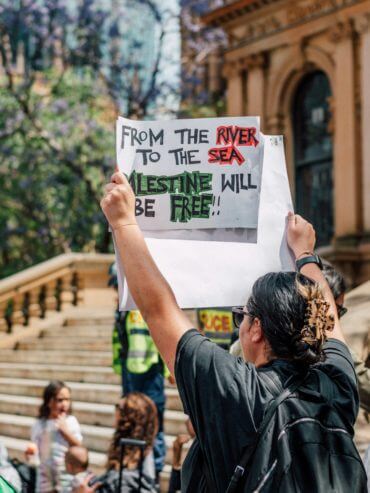Preventing Sexual Abuse in the Orthodox Community
You can listen to the “Jew in the City Speaks” interview above or on NachumSegal.com
Fifteen years ago Debbie Fox, a social worker and Orthodox Jew, joined the team at Jewish Family Services in Los Angeles. She and a group of rabbis were tasked with fielding reports from the local Jewish community. In only six months, they had heard about three cases of sexual abuse in their Jewish day schools. Any illusion that “this doesn’t happen in our community” (which was a much more common thought in those days) was shattered. The rabbis approached Debbie with a plea: figure out how to make our schools safe and protect our children. By the end of the year, reports from outside of the schools began trickling in, and Debbie began her research to create a program for abuse prevention and intervention, thus Magen Yeladim, MY Child Safety Institute was born.
Debbie and I got to chat recently; sometimes it seems that the Orthodox community is actually worse than others when it comes to quantity of abuse. I asked Debbie if that was the case. She explained that no one has a statistical handle on how our community compares to others, but it certainly seems like there is a lot of news about these cases. The negative publicity, and the “front-page-making” nature of the stories has a positive side to it – it’s taught people not to keep it secret, even if it makes us uncomfortable. Kids now speak up, and parents are more likely to respond – not just within the Orthodox communities but the world at large. I asked her when the shift of thinking began and we started getting tough on abuse, and she believes it was the Catholic Church scandal that woke everyone up.
Debbie’s program is based on a community model. School administrations as well as staff are trained, followed by the parents and then (last but not least) the kids. The goal is to create a community that cannot allow abuse to happen. They achieve this by creating strict policies and transparency within our institutions and follow up by empowering our children and developing open communication to allow for intervention, if necessary.
With programs like this success is hard to measure. Do we consider the program a success if MORE abuse is reported or less? Debbie measures success by how many parents have told her stories about their children protecting themselves. She recently heard from the father of a young boy: His child was walking home from shul with another boy who was fifteen years old. The fifteen year old mentioned that his zipper was open and then invited the young boy to his basement to “play a game.” The young boy crossed his arms and stomped home, where he then told his mom that he had a “Do Tell.” He told his mom what happened and that he knew he should say “no,” but couldn’t bring himself to form the word, so he crossed his arms and stomped off instead because that was the loudest way he could express “no.” This young boy had learned the most useful tool for kids’ primary protection: anytime someone wants to talk about, look at, or touch your private parts is an automatic “Do Tell.”
Debbie didn’t stop with just protecting young children. In her new book, Seminary Savvy, she writes a holistic approach for girls living abroad in Israel for their gap year between high school and college (a common practice for many Orthodox Jewish teens). For most girls this is the first time they will be on their own, in a foreign country, away from their parents and guardians for an extended period of time. Her book discusses safe measures for eating and nutrition, getting adequate sleep, and safe transportation in Israel. It also delineates guidelines for appropriate relationships, be it with a mentor or teacher, a chesed family (where the girl volunteers), or a stranger who invites her for Shabbos. The gap year is almost always a wonderful, enriching experience and Debbie’s goal is to keep it that way. The book teaches girls to learn to trust their inner voice/gut and to speak to a trusted adult BEFORE something happens. It also reminds girls of the halachic guidelines of yichud and negiyah – if any man were to try and be alone with them, or touch them, it’s an automatic red flag/’Do Tell’.
Debbie and her organization are resounding proof that we as a community are getting better. She proudly announced to me that more and more people want to be trained and that she is putting together an approach for the Yiddish speaking groups as they are the population she is getting the most requests from these days. We must take ownership for what has gone wrong, and continue to find ways to make our kids (of all ages) safe. But with people like Debbie Fox continuing to spread her message of transparency and empowerment, the future for Jewish children’s safety is getting brighter each day.
If you found this content meaningful and want to help further our mission through our Keter, Makom, and Tikun branches, please consider becoming a Change Maker today.







